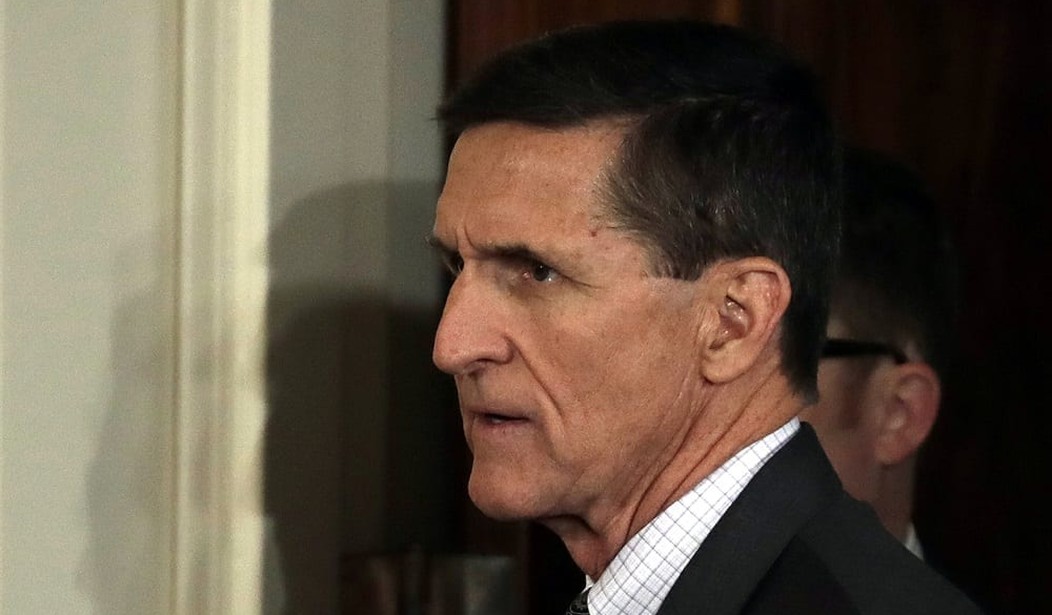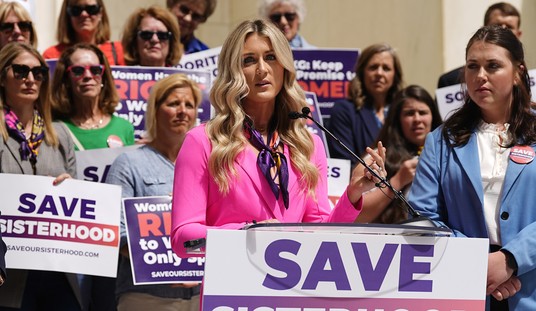
Several weeks ago, Judge Emmet Sullivan, who has presided over the case of General Michael Flynn, requested that Special Counsel prosecutors turn over transcripts of Michael Flynn’s telephone conversations with then-Russian ambassador Sergey Kislyak from December 2016.
Last Friday, prosecutors refused to provide the information.
On Tuesday, Sullivan issued the following statement:
Upon consideration of the government’s submissions in response to those orders, the government is not required to file any additional materials or information on the public docket pursuant to the Court’s Orders.
There has been much speculation over why prosecutors have refused to release the transcripts, especially after it came to light last Friday that the Mueller Report had materially mischaracterized the nature of a voicemail from Trump’s attorney, John Dowd, to Michael Flynn’s attorney, Robert Kelner.
It’s been months since Michael Flynn has been in the news. If anyone would like a refresher on the background of the Flynn case, please read the “Back Story.” Others, please scroll down to “Recent Developments.”
Update: It was just reported that Flynn has fired his legal team. My colleague, Streiff, has reported on this story here.
The Back Story:
During the transition period, Flynn held several conversations with then-Russian ambassador Sergey Kislyak during which the two had discussed Obama’s sanctions. As Flynn had already been tapped to become Trump’s National Security Advisor, it was perfectly legal for Flynn and Kislyak to talk to each other and it was also legal for them to discuss the sanctions. (He was fired by Trump for lying to Vice President Mike Pence about those conversations.)
Kislyak was under US surveillance and Obama intelligence officials had access to recordings and transcriptions of his calls. Upon hearing the calls, several of Obama’s DOJ officials, believed Flynn was in violation of the Logan Act, a law enacted in 1799, “under which no one has ever been prosecuted, that prohibits private citizens from acting on behalf of the United States in disputes with foreign governments.” The Washington Examiner’s Byron York explains:
The Obama officials also said they were concerned by reports that Flynn, in a conversation with Vice President Mike Pence, had denied discussing sanctions. This, the officials felt, might somehow expose Flynn to Russian blackmail.
So Obama appointees atop the Justice Department sent FBI agents to the White House to interview Flynn, who was ultimately charged with lying in that interview.
Note: Flynn had served as Obama’s Director of the Defense Intelligence Agency (DIA) from July 2012 to August 2014 when he was “forced out.” The expressed concern by Obama officials that Flynn might become the target of a Russian blackmail scheme was a smokescreen.
PJ Media’s Debra Heine explains:
Throughout his tenure, Flynn “clashed mightily with the Obama administration’s policies on ISIS and the Iran nuclear deal, among other things, which put him at odds with the Obama-friendly deep state.” Following his ouster, Flynn’s public remarks deepened the rift. “For instance, in November 2015 during an appearance on Fox News, Flynn called for an investigation into the ISIS intel-skewing scandal, recommending that it “start right at the top.”
Obama already despised Flynn. But his hate likely turned to fear when his former DIA decided to throw his support behind Donald J. Trump, another boat-rocker who had a real chance of winning. Obama made a point after the 2016 election of advising Trump not to hire Flynn. But Trump didn’t listen.
Next thing Flynn knew, government spies were listening in on his innocuous phone conversations with Kislyak, his name was unmasked by someone in the Obama administration, and the contents of the call were leaked to the Washington Post (which remains the only serious crime to have emerged in the Russia investigation).
Dan Bongino explains the sequence of events on his podcast:
Note: This is a summary of Bongino’s remarks. His podcasts don’t lend themselves to direct quotes.
Bongino discusses Flynn’s opposition to the Iran Deal, that he had information on how dangerous the deal was for the US. Because of this and Flynn’s knowledge of other administration business, “they need to make Flynn go away. He knows too much. He’s got the goods. Obama officials watch Flynn supporting Trump on the campaign trail.” They’re afraid of what he might reveal. Obama spoke to Trump to try to discourage him from hiring Flynn. Trump hires him anyway.
On December 29, 2016, two important incidents occurred. Mike Flynn was vacationing in the Dominican Republic where he did not have secure communications. The Obama team knew this. “Obama needs to do something to piss off the Russians, but not start WWIII” hoping that they will contact Flynn and they do. Obama orders sanctions against Russia and expels 35 diplomats in retaliation for their interference in our election. Why would he do this nearly two months after the election?
As the Obama team hoped, Russian ambassador Sergey Kislyak calls Flynn in the Dominican Republic. They discussed the events of the day including the sanctions.
And the Obama team now has a transcript and a recording of the call. They use this later when agents interview Flynn. They know that Flynn will not remember all the details of the call and they will use this in the future to set him up for a “false statement” charge.
On January 12, 2017, an Obama official leaked Flynn’s name and details of his December 29, 2016 call with Kislyak to David Ignatius at the Washington Post who then published a story about it. The identity of the leaker is unknown. Whoever leaked it has committed a felony.
On January 24, 2017, two FBI agents arrive unannounced at the White House to question Flynn, omitting the fact that they were conducting a criminal interview,
Both agents have said they believed Flynn had been truthful in answering their questions.
Yet, Flynn is later charged with lying to the FBI.
Recent Developments:
It would be extremely beneficial to obtain a copy of the transcript from the December 29, 2016 call. Investigative reporter Sarah Carter believes it could a “game changer.”
Prosecutors are trying to prevent that from happening.
It is noteworthy that the Mueller Report does not contain any information about which intelligence official leaked details of the December 29, 2016 Flynn/Kisylak call (which was classified information) to Ignatius. But then, why would they bother to investigate wrongdoing by members of the deep state?
An intelligence official who has personally seen the transcripts told NPR “they contained “no evidence” of criminal wrongdoing, although the official said it can’t be definitively ruled out. The official also said there was “absolutely nothing” in the transcripts that suggests Flynn was acting under instructions “or that the trail leads higher.”
The official added, “I don’t think [Flynn] knew he was doing anything wrong. Flynn talked about sanctions, but no specific promises were made. Flynn was speaking more in general ‘maybe we’ll take a look at this going forward’ terms.”
The transcripts might contain exculpatory evidence that would benefit Flynn.
Last Friday, we learned that the Mueller Report omitted the critical sentence of a voicemail from Trump’s attorney, John Dowd, to Flynn’s attorney, Robert Kelner. This missing sentence completely altered the meaning of Dowd’s message. The only reasonable conclusion one can draw is that the Mueller team intended to mislead the public.
Dowd appeared on Sean Hannity early this week and said, “Isn’t it ironic that this man [Mueller], who kept indicting and prosecuting people for process crimes, committed a false statement in his own report.” Yes, it is.
And, if prosecutors tried to mislead the public about that voicemail, there is reason to believe the transcripts which prosecutors have refused to hand over to Judge Emmet G. Sullivan, may contain information they want to hide. Sullivan formally requested the transcripts on May 16th and prosecutors have refused to release them.
The Special Counsel prosecutors’ “Addendum to the Government’s Memorandum in Aid of Sentencing” stated:
The government further represents that it is not relying on any other recordings of any person, for purposes of establishing the defendant’s guilt or determining his sentence, nor are there any other recordings that are part of the sentencing record.
Okay, we’ll just take your word for it gentlemen, because you’ve proven yourselves to be so trustworthy in the past.
Former DOJ official Joshua Geltzer told The New York Times that “intelligence collection would be a rare step to make public. What you see in today’s filing is the government trying to avoid disclosing that material.”
There have been several oddities surrounding the FBI’s investigation of General Flynn. First, neither of the two FBI agents who interviewed him on January 24, 2017, Peter Strzok and Joe Pientka, thought he was lying about his “recollection of the conversation.” Comey even said this during congressional testimony.
Flynn eventually plead guilty to lying to the FBI. But this was only after he had gone deeply into debt and lost his home due to his mounting legal bills. Some believe that Mueller’s investigators threatened to go after Flynn’s son as well.
It was found that the FBI’s 302 (interview report) was not written until August 22, 2017, seven months after Strzok and Pientka had interviewed Flynn. It is standard FBI protocol for 302 reports to be written with a day or two of speaking with a witness.
Carter suggests comparing the transcripts (if they are released) to the FBI’s 302s to search for discrepancies.
If there’s one thing we’ve learned over the last few years, it’s that Robert Mueller cannot be trusted.














Join the conversation as a VIP Member